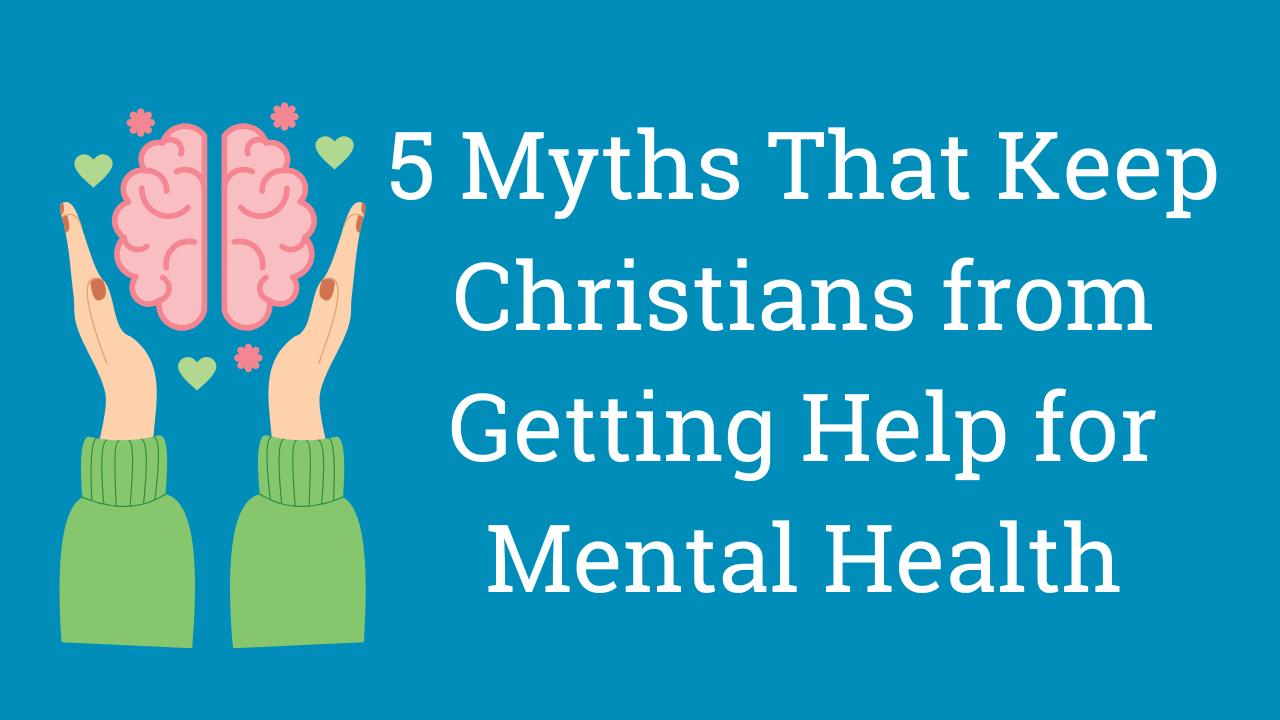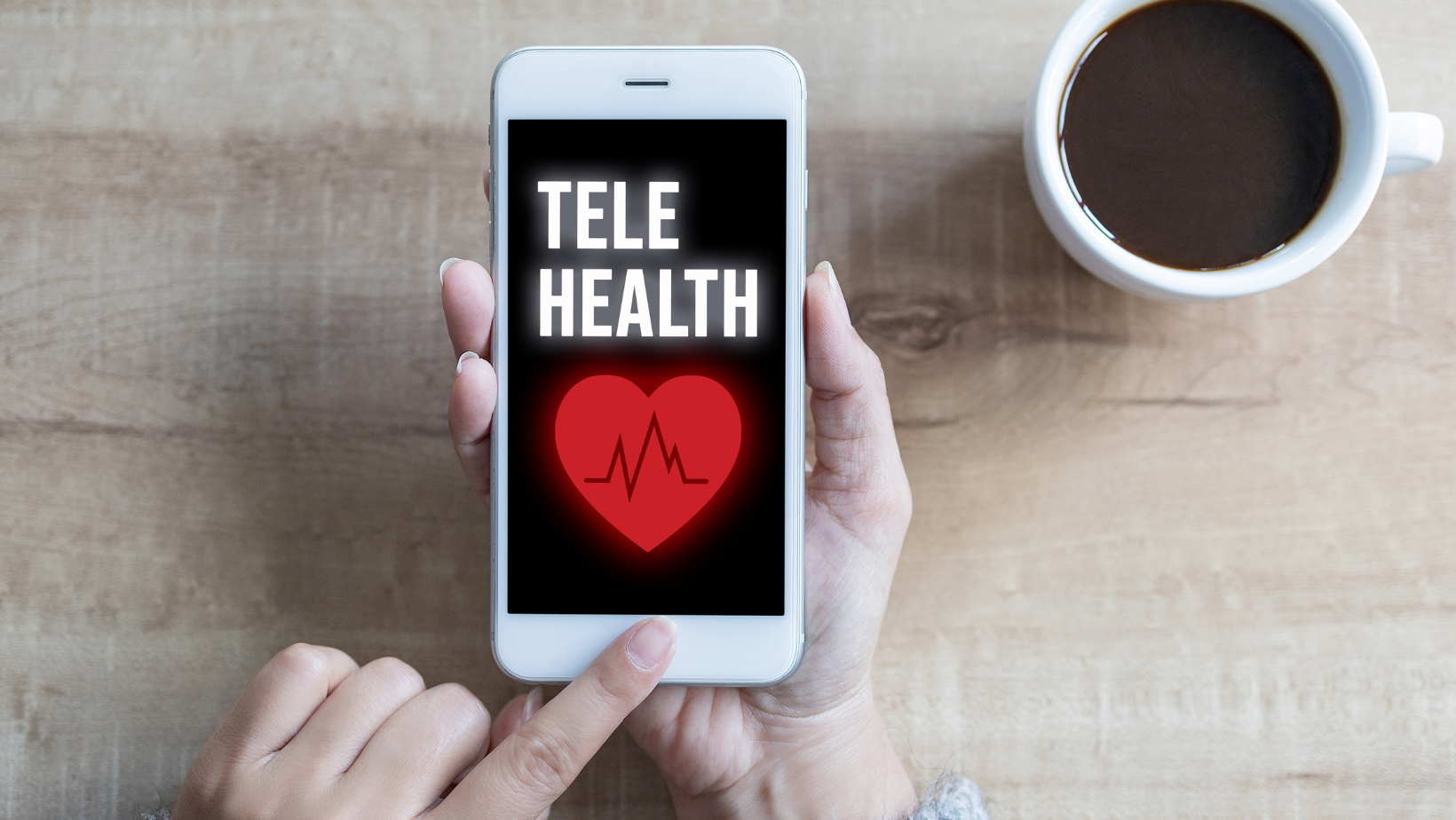
5 Myths That Keep Christians from Getting Help for Mental Health
By Brian Briscoe, M.D.
For many Christians, seeking help for mental health feels like walking a tightrope—trying to honor God, trust Scripture, and yet admit that something feels wrong deep inside. Sadly, far too many believers suffer silently because of well-meaning but misguided beliefs that block them from getting the help they need.
Here are five common myths that keep Christians from pursuing care—and the truth that can set us free.
Myth #1: “If I just had more faith, I wouldn’t be struggling.”
This is perhaps the most pervasive—and painful—myth. It equates emotional suffering with spiritual failure, as if anxiety, depression, or intrusive thoughts are signs that we are not “trusting God enough.”
But Scripture paints a different picture. Elijah, after witnessing God’s power on Mount Carmel, collapses under the weight of despair and asks God to take his life (1 Kings 19). David’s psalms are filled with cries of anguish, fear, and sorrow. Jesus Himself was “a man of sorrows” and “acquainted with grief” (Isaiah 53:3).
Faith is not the absence of suffering. Faith is the decision to cling to Christ in the midst of it.
Myth #2: “I should be able to handle this on my own.”
This quiet assumption often keeps believers isolated. Many Christians believe that if they were stronger, prayed more consistently, or simply pushed through, the distress would resolve on its own.
But Scripture doesn’t teach rugged individualism—it teaches interdependence. Paul reminds us that we are part of the body of Christ and are meant to “bear one another’s burdens” (Galatians 6:2). Seeking help—whether from pastors, mentors, medical professionals, or trusted counselors—is not a betrayal of faith. It’s an act of humility and wisdom.
God often provides healing through community and through others who are equipped to walk with us.
Myth #3: “Mental illness is just a result of unconfessed sin.”
There is no doubt that sin can affect our minds and relationships. But to assume that every case of mental illness is the result of moral failure is neither biblically sound nor clinically accurate.
Jesus rejected this kind of thinking when His disciples asked about the man born blind: “Who sinned, this man or his parents?” Jesus answered, “Neither… but that the works of God might be displayed in him” (John 9:2–3).
Mental health struggles can arise from a variety of influences—trauma, grief, spiritual stress, medical conditions, neurobiological vulnerabilities, or a complex mix of factors. The presence of suffering does not imply guilt. Sometimes, the most faithful thing a Christian can do is to humbly seek healing, even when the cause of suffering is unclear.
Myth #4: “Medication is a crutch—real Christians don’t need it.”
This myth often springs from a desire to rely on God alone. But we don’t take this approach with other medical issues. When someone has diabetes, we don’t shame them for taking insulin. When a child has asthma, we don’t ask them to throw away their inhaler and “just pray harder.”
Why, then, do we treat mental health differently?
Medication, when used appropriately and under the guidance of a physician, is not a sign of spiritual weakness. It is a tool—one that can help create the internal stability needed to engage meaningfully with therapy, community, and God’s Word.
Myth #5: “Getting help makes me a bad witness.”
Some fear that acknowledging anxiety, depression, or intrusive thoughts might “hurt their testimony.” But hiding pain behind a mask of perfection isn’t the witness Christ calls us to.
Paul boasted in his weakness so that “the power of Christ may rest upon me” (2 Corinthians 12:9). Our stories of struggle and redemption—the mess and the mercy—are exactly what the world needs to see. They point not to our strength, but to the sustaining grace of Christ.
A Better Way Forward
If you or someone you love is struggling, you are not alone—and you are not failing God. Mental health struggles are not a sign of spiritual collapse. They are a reminder that we live in a fallen world, and that healing often comes through both prayer and process, through both Scripture and support.
As Christians, we don’t have to choose between faith and mental health care. We can hold both. We can seek the help we need—while resting in the One who has already secured our ultimate healing.
About Dr. Briscoe
 Dr. Brian Briscoe is a board-certified psychiatrist and the founder of Next Step 4 Mental Health, a private practice in Louisville, Kentucky.
Dr. Brian Briscoe is a board-certified psychiatrist and the founder of Next Step 4 Mental Health, a private practice in Louisville, Kentucky.
He is passionate about integrating clinical excellence with a thoughtful, respectful approach to faith. Dr. Briscoe works with individuals across a wide range of concerns, including anxiety, OCD, and mood disorders, and has a special interest in helping Christians navigate mental health through a gospel-centered lens.
He previously served as Chair of the Psychiatry Section of the Christian Medical & Dental Associations.
Learn More
Preparing for Telehealth: What Parents Need to Know
As parents, you’ve no doubt taken your child to dentist appointments, eye doctor appointments, and annual physical exams. These routine visits are similar: arrive at the office, fill out paperwork, wait in the lobby until your name is called. But what about preparing for telehealth?
But what happens when your appointments are virtual? What do parents need to know?
Here at NextStep2MentalHealth, our multidisciplinary team is proud to offer a variety of mental health services through telehealth – and not just for adults. Children and teens can benefit from virtual care.
Below, we share five tips that parents can use to get their children ready for a virtual session.
5 Tips to Remember When Preparing for Telehealth
If your teen already uses video calling apps like FaceTime, Zoom, Google Hangouts, or Skype, then he or she already has a good idea of what a telehealth session is like. For younger children — especially those who don’t use much technology — a virtual appointment can be intimidating. Setting aside the technology, some children may feel a little nervous before an appointment, especially if they’re meeting a new provider for the first time. They may wonder what happens in therapy or what happens during an evaluation.
If your child is scheduled for an upcoming virtual appointment, it’s a good idea to prepare your child ahead of time — especially if it’s their first time experiencing therapy or an evaluation.
1. Know what type of session your child is having

At Next Step 2 Mental Health, your child can receive a variety of services remotely. This includes therapy, coaching, new patient appointments, and more.
When you know what type of service your child is receiving, it’s easier to answer their questions.
Reminder: Virtual sessions are only for non-life-threatening visits. If your child is experiencing a mental health emergency, call 9-1-1 or head to the nearest emergency room. You may also use the new 24/7 crisis hotline by calling 988 for those in crisis.
2. Gather important information before the session starts
Before your appointment begins, make sure you have:
- A list of your children’s current medications
- Your child’s medical history, including allergies, weight, and any previous diagnoses
- A list of questions that your child has (if any)
- A list of questions that you have (if any)
Depending on what type of session your child is having, you might want to write down a list of concerning symptoms that you want to address. Be prepared to answer a variety of questions, including how the symptoms have been occurring, when the symptoms are most severe, and any other related details.
3. Find the perfect location

This is one of the most important steps to having a successful telehealth session. The ideal location is quiet, well-lit, and free from distractions. Consider setting up on the dining room table or in a den. The camera should be at eye-level for your child.
If you have pets or other children, make sure they are situated elsewhere so you can focus on the session too.
It’s also important that no other children or family members can listen in during your child’s session. It’s important your child has privacy during their call.
4. Start with an introduction
You might have a telehealth session with a therapist or pediatrician that you’ve seen dozens of times. But if your child is seeing a new provider, you’ll start with introductions. Let your child know ahead of time if he’ll be meeting a new doctor so he can prepare mentally for the meeting. During the meeting, one of our providers will start by sharing his or her name and title. At this time, encourage your child to introduce himself too! After your child introduces himself, you’ll be asked to confirm a few details too. You’ll already have completed a treatment consent form, but you’ll still confirm your child’s name, date of birth, etc.
Tip: If your child is nervous (which is normal!), practice introductions beforehand!
5. Know your next steps
Before your child’s virtual appointment comes to an end, make sure that you understand the provider’s diagnosis, instructions, and/or advice.
Tip: Keep a piece of paper or notepad nearby so you can take notes during the session, if needed. Don’t hesitate to ask for clarification! We want to make sure your session is valuable and helpful.
Questions? We’re Just a Call or Click Away
At NextStep2MentalHealth, we’re happy to provide comprehensive psychiatric care and therapy for your children. Whether your child has anxiety, depression, or ADHD, we don’t want him or her to miss out on valuable sessions, and we are here to make sure your telehealth experience is successful.
Questions about preparing for telehealth? We’re just a call or click away. Give our Louisville, Kentucky mental health clinic a call at 502-907-5908 or request an appointment here.
Learn More
Boost Your Mental Health with These At-Home Activities
Whether you’re stuck at home quarantining after a COVID exposure or you’re simply settling in for a weekend at home, it’s always good to have a list of at-home activities that boost your mental health.
In this blog, we’ve curated a list of at-home activities that support your mental wellness.

Reading
Reading provides many benefits.
“Reading can even relax your body by lowering your heart rate and easing the tension in your muscles. A 2009 study at the University of Sussex found that reading can reduce stress by up to 68%.” (NAMI California)
Reading also provides a healthy escape from life’s daily stress. Unwind after a busy day with your favorite story or favorite characters. Reading also boosts empathy and understanding.
Need inspiration: Explore GoodRead’s list of relaxing books
Reading can be particularly helpful for individuals struggling with hard or sensitive issues. According to NAMI California, reading about similar situations can help teens work through tough challenges, including issues with bullying.
While reading your favorite fictional story can help you relax, there is also merit in reading non-fiction books, including those about particular mental health conditions.
Need inspiration: Read the top 13 mental health books of 2022
Gardening
Just because you’re at home doesn’t mean you can’t go outside! Spending time outside boosts your mood (and serves up a nice dose of vitamin D), but you can further support mental wellness by gardening. Gardening:
- Boosts your mood
- Boosts your self-esteem
- Improves your attention span
- Provides a good workout (and exercise helps alleviate symptoms of many different mental health conditions)
- Encourages social interaction
Get more gardening tips here.
Music & Family Time
Both listening to music and spending time with friends and family can support mental wellness. So why not combine both of these elements? You can:
- Watch a concert on TV
- Play your favorite music
- Set up an at-home karaoke session
- Play musical chairs (if you have little children at home who would like to play)
- Play music while you make dinner or while you eat
- Write a song to express yourself
Music can reduce your stress and lift your mood.
Movies
Granted, not all movies support mental wellness. That being said, watching certain movies can have a positive effect on your mental health.
Watching a funny movie can make you laugh and laughing releases feel-good endorphins.
But what about sad movies?
“Similar to laughter, crying could activate the release of endorphins, according to a 2016 study. Dramatic movies could increase feelings of gratitude and reduce feelings of isolation. They could also act as a reminder that everyone experiences struggles of their own and invite viewers to reflect on their own problems.” (PsychCentral)
Games
Games, especially strategy games, can boost your mood, improve working memory, and support emotional regulation. Playing board games can be a good opportunity to talk and bond with children and teens — especially if they have a hard time opening up.
Getting the Help You Need
Reading, listening to music, reading, spending time with family, and playing games are all good wholesome activities that support your mental wellness, but sometimes you just need more support. Here at NextStep2MentalHealth, our multidisciplinary team provides comprehensive care for anxiety, depression, bipolar disorder, OCD, PTSD, and more. Whether you need therapy, coaching, or medication management, we can help you get the comprehensive treatment you need.
To get started, schedule an appointment today.
Learn More
Depression amongst Teenagers
Generally, there are two peaks of depression across the normal lifespan for human beings. One of these peaks occurs in middle school (teenage years)…
Learn More
Depression in Children and Adolescents
Children and adolescents be affected by depression. It is less commonly diagnosed than with adults, it is important to recognize the signs and symptoms.
Learn More
Choosing a medical professional to evaluate for ADHD?
It is very important that treatment options be discussed with a professional who is well informed about the significant, life-long consequences of…
Learn MoreCognitive and psychological testing for children and adolescents
If you feel like your child gets frustrated with his homework or schoolwork often and you wonder why then two common disorders might be contributing:
Learn More